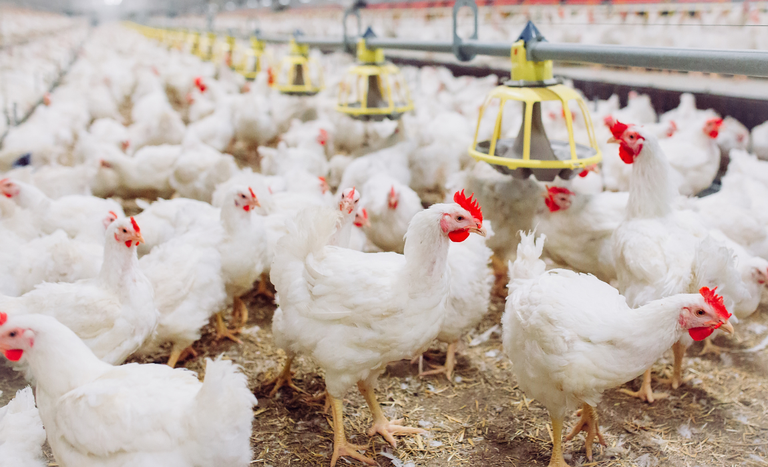China and the United Arab Emirates occupied the top positions in the destinations of Brazilian chicken meat exports in 2024.
From Brazil, 562,208 tons of chicken meat were shipped to China, while 455,121 tons were shipped to the United Arab Emirates.
These volumes imply a year-on-year drop of 17.7% in the case of China and an increase of 3.3% in the case of the United Arab Emirates.
Destinations of Brazilian chicken meat exports
Poultry meat production in Brazil accumulated six years of consecutive growth at year-on-year rates, to 14.97 million tons in 2024.
Brazil stands out in chicken meat production for several reasons. For starters, it has abundant natural resources. It has fertile land and enough grain to feed the birds. In addition, the climate is favorable all year round.
For another, Brazil has a modern production chain. It uses advanced technology and maintains high sanitary standards. The country has also achieved a strong presence in the global market. This is due to its export capacity and the constant opening of new markets.
These were the main destinations for Brazilian poultry meat exports in 2024, in thousands of tons and year-on-year growth rates:
- China: 562 (-17.7 percent).
- United Arab Emirates: 455 (+3.3 percent).
- Japan: 443 (+2.2 percent).
- Saudi Arabia: 371 (-1.6 percent).
- South Africa: 325 (-4.4 percent).
- Philippines: 235 (+7.0 percent).
- European Union: 232 (+7.0 percent).
- Mexico: 213 (+22.6 percent).
- Iraq: 180 (+18.1 percent).
- South Korea: 156 (-22.8 percent).
H5N1 avian influenza outbreak
The Mexican government has suspended imports of chicken meat, fertile eggs and live poultry from Brazil as a precautionary measure. The decision was taken after an outbreak of H5N1 avian influenza was detected in a farm located in Rio Grande do Sul.
This measure seeks to protect domestic poultry farming. It will remain in force until sufficient animal health information on the control of the outbreak is available. Mexico has already notified Brazil of the trade suspension.
The Brazilian Ministry of Agriculture highlighted the soundness of its inspection system. It also requested that the principle of regionalization be applied. This approach has already been accepted by other countries, such as Japan and the United Arab Emirates.

